
*Editor's Note: In a column titled Great Novels Need Doubt as Vantage that appeared in the Deseret News Mormon Times, religion editor Jerry Johnston lamented there would likely never be a Great Mormon Novel because he has, "known some marvelous Mormon wordsmiths. But being a Mormon is not like being Catholic or Jewish. There is precious little wiggle room for devout LDS writers. There aren't a lot of gray areas to explore."
Here at the Top of the Morning, author David G. Woolley suggests that the great Mormon novel will take the broken, first step stories and make them complete. And why not? If Mormonism is the fullness of the gospel, then shouldn't Mormon novelists be the ones who bring that fullness to storytelling? Here is David's response to columnist Jerry Johnston.
June 10, 2009
Dear Jerry:
The Great Mormon Novel is possible. It will happen. It will be faithful, uplifting, and embraced by those in and outside of the church for the very reason that it completes the now incomplete definition of the great novel by mending our broken stories where evil is personified as good, and completing our incomplete dramas where good is lampooned as evil.
The great Mormon novel won't chart new territory or break new ground as much as it will lead the reader to rediscover the storytelling path to our fullest mortal potential--the path that is lost in so much secularization.
The great Mormon novel will reacquaint men with the divine. It will celebrate the demands of gospel centeredness. It will rediscover what has been lost. It will restore faith in men, reverence for God and it will uncover the revelatory connection between heaven and earth. It will find joy in the work of building the kingdom. It will portray the shedding of one's ego and ambitions. And it will find its voice, not in the surrendering of one's ideas as you suggest in your article, but by celebrating the divine creativity that flows from discovering that the will of God is an infinitely more holy road than is the dead-end of half way back authorship. The community of great Mormon novelists isn't limited to Mormons who leave the fold and come half way back to the church. There is a more complete ending to every story than coming half way back.
The literati of our time celebrate redemption in the half way back story. The world finds comfort in those first redeeming steps. There is a certain worldly familiarity in the Aaronic Priesthood approach to redemptive storytelling, and since all storytelling is about redemption, the great Mormon novel will plumb the depths beyond those first preparatory steps and carry the reader into the restored fullness of the redemptive human drama.
The great Mormon novel will be a Melchizedek novel that takes redemptive storytelling through to is fullest, most complete, entirely natural dramatic high point. A temple climax set in the figurative tops of the mountains. It will give us hope that men are that they might have joy. Divine. Eternal. Joy.
The great Mormon novel won't be the investigator turned convert King Lamoniesque story. It will be the disciple, final stage, Enosesque story. The story of an active, bishop-like, tithe-paying, Relief Society President-like, moral, obedient, humble, temple-going, ecclesiastic supporting soul, who finds redemption not in the preparatory steps of coming back into the fold, but in the sanctifying graces of the life of discipleship, adopting God's will as his own. Isn't that the message of the restoration? Restoring an understanding, not of the first principles and ordinances, but of the divine potential in each of us? The great Mormon novel will give the reader a glimpse of their divine end while they are yet living in the earthly pages of their mortal beginnings.
It will happen Jerry. New wine will be poured into new bottles. The great Mormon novel will be written. The old rules of literary critique will be discarded for new ones. The old ways of viewing a novel will become new. The world will unwrap our literary gift left under the tree and know us better. The pages will be salted with inspired inklings and prophetic foreshadowings and when the reader arrives at the last page, she will close the book and say, "I knew it was going to end like that." And by knowing us better, the world will know that though the end is foreshadowed in the beginning, the satisfying climax isn't in the first steps of coming half way back along the narrow way or the opening scene of chapter one, but in enduring to the sanctifying conclusion. Which is, as in all great stories, The End.
Sincerely,
David G. Woolley
LDS Novelist
__________________________
Join author David G. Woolley at his Promised Land Website.

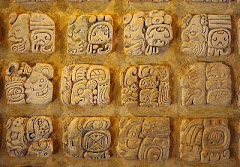
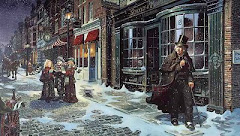


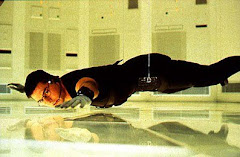
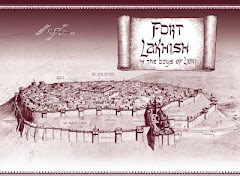



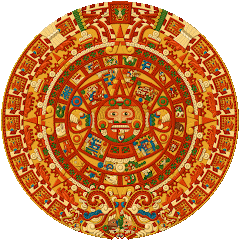
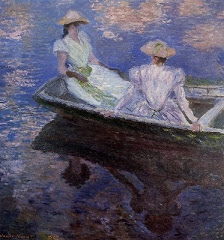
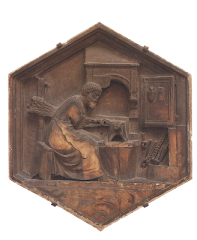

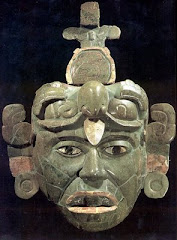



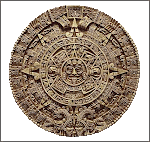

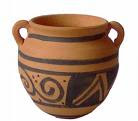
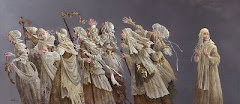


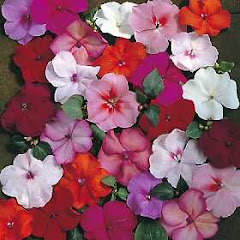

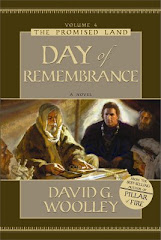


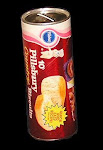
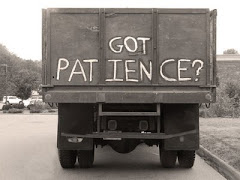
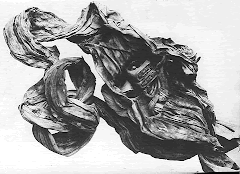
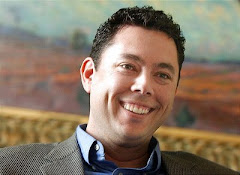



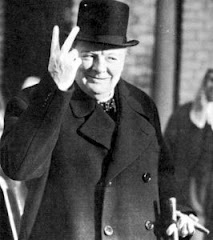
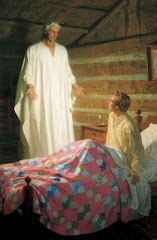


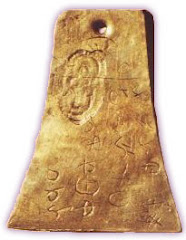


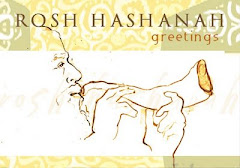








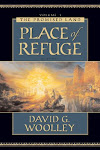
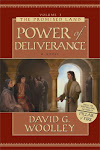

27 comments:
Ah, water to a parched throat.
I will have a better comment when I have had time to read Jerry's column and then reread this with that in mind.
Write it Dave. "If it is to be, it is up to me." Go for it. I agree with you. You have the ability.
Hm. This is something I think about quite often. I have come up with no good solutions to what I see as a host of problems.
My thoughts are only half formed here, so take my comment with a grain of salt and a little compassion.
It seems to me that the problems of current Mormon fiction, as I see it, fall into one of two categories.
The books are either too vulgar (I could list names, but I won't... let's just say their books don't get sold at Deseret Book), or they're too happy. Not that happiness is bad, and in fact, some of the best books there are are wonderfully, beautifully happy in some ways (Marilynne Robinson's "Gilead," Cormac McCarthy's "The Road," Willa Cather's "Death Comes for the Archbishop," etc.)
But the thing is, I'm not sure that one can adequately fulfill the goals you lay out in your response (which are incredibly optimistic, and heartening) without really delving into the problem of evil. It's sort of the whole matter of the necessity of opposition in all things. If you're going to discuss real faith, you have to deal with the matter of real doubt and despair. If you want to discuss real forgiveness, you've got to find a way to also equally discuss real sin. The light and goodness you speak of seems impossible to adequately represent through fiction unless you are also able to really address the darkness and evil that must be overcome to have it. The price has to be paid, you know?
And at this Mormon moment, I'm not sure it can be done. Partly because I'm not convinced that anyone (who's going to have time to write a book, that is) adequately understands evil in that way. And, truth be hold, I'm not sure that's such a bad thing.
At any rate, while I am not fully convinced by your response (though I did find it uplifting and hopeful, which I appreciate), you have provided another view which I will continue to think about.
It also seems that you read Jerry's articles regularly, as do I. :)
Mormon Times is good stuff, 'eh? :)
P.S. By real evil, I don't mean the evil stock characters (Rasputin, Jafar, and wicked stepmothers), but real evil characters -- something along the line of Chigurh, in No Country for Old Men (which delves into the personality of an evil soul in a way I haven't encountered in any other book I've read).
I would be interested to hear your thoughts on this, as you have time.
The Great Mormon Novels have already been written by an author you might have heard of. His name is Orson Scott Card, and they would be "Lost Boys" and "Saints: Woman of Destiny." He has also written not so directly Mormon, but still Mormon "Red Prophet: Alvin Maker" series based on Joseph Smith and early Mormonism and his "Homecoming" series based on the Book of Mormon. They are popular and well written. I believe at least "Lost Boys" will survive the test of time.
Hi Everyone:
Long time no post. I'm still under a huge writing deadline. Still lots to accomplish. I'll be brief.
Sandra: Looking forward to the time when you've had your drink and you can actually join us.
Jon: I don't think so buddy. I freak out just thinking about sitting in front of a computer screen for that long.
Makayla: Here's the deal. Fiction is a lie. It isn't real life. Dramatic fiction, the stuff that's intended to story-alize reality, is supposed to be a reflection of real life. So the author works really hard to make their stuff pass the believability test. Does it have the feel and look of reality. But whose reality? Most schools of creative writing are really into evil. You can't have a penitant character until they've been sinful. You can't have a faithful character unless they've been faithless. Okay. A good point. It may have a lot of merit. I'm not saying that whoever teaches that idea has struck the fountain of story-telling truth.
Too many of our stories have embraced the shock-value syndrome. We look for the most sinister murders. The most twisted morals. The most vile motivations. But if your story is about the Ammish people, in that world, the dilemma of wither they should buy an automobile is the difference between faithfull and faithless. And if you buy that car, and then sell it, your character has essentially seen the sinful side and found a measure of redemption.
If your Mormon character gets a tatoo, then your story can be directed toward the enduring to the end idea of following the council of a prophet.
Jettboy:
I would agree that there are many novels out there which are written by Mormons and which qualify as great novels. Card is certainly one of a number of authors who have written great novels. But they don't really qualify as a Great Mormon Novel.
The same is true of the Whitney Awards. The only criteria is that they are written by a Mormon and that they are uplifting, praisworthy, and of good report. You could argue that some scenes in Card's books don't qualify.
But a great Mormon Novel has got to be one where a non-Mormon can read it, and come away saying, "ah, so that's what makes a Mormon and Mormon."
What seperates Mormons from other faiths is the restoration. And what is the restoration if it is not a series of revelations beginning with the first vision, that restores to earth the idea of the divinty and potential of each of our Father's children along with all its attendant authority to act in the name of God. So, the great Mormon Novel has got to deal with the Olive Leaf (see your D&C) which are some of the greatest restoration revelatory ideas summarized by Joseph Smith's revelations. For a novel to be a great Mormon Novel the idea of enduring to the end, or the divinity of men, or the divine potential of becoming more like Christ has got to be part of the novel. It isn't just a novel about "what would Jesus do." Its a novel about actually becomming like Jesus.
Its the doctrines of the restoration that must drive the great Mormon Novel. Not just the hand of a Mormon author telling any story well.
Last night I had just come home from class and was too tired to think about what I wanted to say.
This morning I printed out Jerry's column and this post along with comments and took it to Brandi's soccer practice to look over and formulate my response.
Huh, I was there for 2 hours. That should be plenty of time to find a response, right. I started writing in the notebook I carry with me, when practice was over, I found I had filled 4 1/2 pages with summary/bullet points and I only quit at that point because practice ended and we needed to leave.
So I will find a way to summarize what I want to say and then I will say it all in a post on my blog later today.
David could you clarify your statement: "Old wine will be poured into new bottles."
I know the reference in the gospels of the New Testament. Then there is this from Joseph Smith:
"Many objections are urged against the Latter-day Saints for not admitting the validity of sectarian baptism, and for withholding fellowship from sectarian churches," explained Joseph Smith. "Yet to do otherwise would be like putting new wine into old bottles, and putting old wine into new bottles. What! new revelations in the old churches? New revelations would knock out the bottom of their bottomless pit. New wine into old bottles! The bottles burst and the wine runs out!" (History of the Church, 4:426).
Explain to me your thinking when you wrote this.
Didn't I say "New wine will be poured into new bottles?" Sure enough. That's what is says:
Matt 9:17
17 Neither do men put new wine into old bottles: else the bottles break, and the wine runneth out, and the bottles perish: but they put new wine into new bottles, and both are preserved.
Ok, that makes more sense, because the copy I printed out this morning does not say NEW wine into new bottles. It says, "OLD wine will be poured into new bottles."
Thank you for that clarification.
Don't ever print anything out again. Once its in ink, its impossible to deny.
I knew you were going to say that. But how else was I supposed to pick it apart at soccer practice? Do you think I actually understand what they are doing out there? I had to have something to occupy myself.
It is impossible for any author to experience a fraction of the emotions, action, drama, or to have experienced the wealth of life-leassons their characters bring to a novel. Impossible.
They can only draw on what they see, what they read, what they hear from others, what they read, and their own invention. That is, again, why fiction writing is a lie. It is imagination putting on reality. It is invention inspired by possibilities. It is not real. Not even my historically accurate, highly researched, authentic, scripturally based lies.
Which, if you think about it, makes Jerry Johnston's premise preposterous. Of course we can write the great Mormon novel. And of course it doesn't need to be written by an author who has left the church and come half way back. There's no need to experience sin in order to write about it. There's no need to be evil in order to portray it. 99 percent of all fiction is just that. Fiction. Make believe. Imagination. With whispers of reality, and paralells in real life, and morals, and deep thoughts, and moralizing, and values sharing, and doctrine, and faith, hope and charity. But it will always be make believe AND entirely within the realm of anyone to write, about anything, in any time period, in the voice of any character, in any setting, WITHOUT ACTUALLY HAVING TO HAVE EXPERIENCED ANT OF IT IN THE REAL WORLD. Not a fig of it (that's for all you Old World Promised Land fans). Not an ounce of it.
The great Mormon Novel, if you do your reserach, hone your craft, interview some people, could possibly be written by a non-Mormon. But he wouldn't be a non-mormon for long if he really wrote the Great Mormon novel--the novel that mormons and non-mormons would both read and then say, "Sure enough, that's what Mormons are all about."
My last comment on the matter, I promise. :)
A friend of mine pointed me to a couple of articles that deal with similar issues being discussed between you and Jerry.
Bruce Jorgensen's "To Tell and Hear Stories: Let the Stranger Say"
http://mldb.byu.edu/totell.htm
And then, in response to that one, Richard Cracroft's "Attuning the Authentic Mormon Voice: Stemming the Sophic Tide in LDS Literature"
http://mldb.byu.edu/attune.htm
And then, for kicks, Gideon Burton's response to both:
http://mldb.byu.edu/gbask.htm
I wish I knew how to actually make the links in the comment. Sorry for my lack of technological ability there.
So then, Dave, if fiction is a lie,
why do you spend so much time and energy writing it? And why do I spend my ever so precious discretionary time reading it? If we are, as we claim to be, lovers and seekers of truth, why do we embrace fiction? What is its role in a culture that seeks things as they really are and as they really will be? What good will the Great Mormon Novel accomplish that pure undiluted truth has not?
What will fiction accomplish that truth hasn't?
Nothing.
That's the short answer. The long answer goes something like this:
The panicked Mormon reader asks the question: Is fiction worth the time if it isn't true?
The answer is hidden in that narrow corridor between reality and fiction. In that small space where the story is a reflection of reality. A place where we share our vision of the paring of the veil and see heaven from our earthly vantage.
The earthly blessing of paying tithing is that the our hard work won't be destroyed--that the devourer will not destroy the fruits of our field. The spiritaul blessing of paying tithing is that the windows of heaven will be opened and we will be permitted to see into heaven--and by seeing, our faith will be redoubled again and again.
Where tithe paying is a window into heaven, fiction is heaven's mirror, reflecting back to us the work of our father in heaven. We look in and we see ourselves, the object of our Father's work, the bringing to pass of our immortality and our eternal life. It's in that mirrored reflection of fiction where we see ourselves, speak of our covenants, express our greatest hopes, seek our highest aims, and for one breif glimpse, see ourselves as God sees us. Divine children of divine heavenly parents.
Like the silver smith of Malachi's third chapter, fiction captures our earhly existence of refining grace. Unlike any other metal, the silver smith stands over the crucible waiting until he sees his reflection in the molten ore. If he waits to long the silver is consumed in a puff of smoke and a residue of charred could-have-beens. If he removes the ore from the heat too soon, the silver is filled with impurities.
So in life, as in those reflective fictional spaces, we wait for the image of Christ to find relfection in our image, and once we take upon ourselves His image, the story is over, the ore is refined, the climax is reached, the end is achieved.
Fiction's worth is in the sharing our glimpses, the reflection of our pursuit of that image of redemption. We share it with our friends and neighbors. Fiction is a testimony meeting in ink. It is a sacrament meeting talk on paper. It is home teaching in letters. Visiting teaching in verse. Its our expressed convinction that we are more than this existence, blessed by the promise of redemption, divine in our potential. Sons and daughters of God.
Or we could just use the short answer.
Ahh, beautifully said. May I make one correction? Fiction "can" not necessarily "is." Which is why it behooves us to choose our lies and our liars ever so carefully.
Just reread your comment. It makes me yearn for more than the Great Mormon Novel. Much more. It makes me wish for the Great Zion Library. A multi storied affair where the stacks are crammed with volumes. Novels that tell the stories of becoming. Stories of saints in all the dispensations. Stories of saints in Moscow, Uganda, Venezuela, Orem, Utah and all points in between.Stories of pain and fear and disappointment punctuated with faith and faithfulness and joy. Stories that testify of the personal yet infinite power of Christ's atonement and God's love. Stories that, even though they're "lies," are accompnied by the power of the Holy Ghost. I dream of the day that I'll walk into a library and know that anything I take from the shelf will be virtuous, lovely, of good report, praiseworthy, and well written. And, in such a library I'll still feel that same old library feeling...so many books, so little time.
That definitely would be a "dream" library. But, loving to read as I do, I had to stop and wonder: If those were the only kinds of books on the shelf, what would happen to all the Great American Novels? A lot of them are NOT virtuous, lovely or of good report. (Unfortunately..) Of course I realize you were talking about the Great ZION library. I suppose we could keep the others in a library of their own? There are a few I would truly miss. Just a thought. I enjoyed your other comment too Anita. The one about why DO we spend our time reading the things we do? :)
Hmm...Cami,thanks for pointing that out. I wouldn't want it to be an exclusive all Mormon library.
Not at all. There is so much of truth and beauty beyond our own circle. So very much to learn from others. I'm sorry if I suggested otherwise. To exclude any of the best books seems the antithesis of Zion. No, my dream library would be filled with ALL great works virtous, lovely, of good report, praiseworthy...and well written.
Anita: Agreed. :) Here's hoping we will actually see something like that in our lifetime. One never knows. :)
As I have read these comments I find myself more confused than enlightened. I get that it is hard to write something if you don't know something about it's full scope. How can you write about happiness if you don't know it's opposite? How can you write about redemption if you haven't been a sinner? But all of this suggests you have to be an alcoholic to help an alcoholic. I don't agree. Do you need some of life's experience to understand what temptation is like, what discouragement is like, what hope is, what possibility feels like, yes. I may not understand the full topography of someone else's experience, but I'm not sure another alcoholic understands the topography of another alcoholic any better than I might. In fact I may have more in common than "Joe," the alcoholic, than "Sam" does who is also alcholic. All of this also presupposes that all we have to draw on when we try to understand one another is our own viewpoint, but God gives each of us glimpses into the truths of other people. We are not left without help in understanding what others experience.
Now to "truth" and "lies." This discussion seems so polarized and dichotomous that I felt more confused than enlighted. Is writing fiction really a lie? Couldn't fiction be an incomplete truth, a pointer or indicator. I have always thought that a lie was an attempt to deceive. I'm not sure that all fiction is an attempt to deceive. Fiction might actually be an attempt to tell a truth. Now if I call it fiction, you and I have an understanding that there are part of this that are not "true." Is it now a lie? If I don't tell you it is fiction (ala Paul Dunn), and it is not completely true on purpose is it a lie? Are parables truth or lies? And just because it is "make believe," is it a lie? Then most of creativity is a lie? With this kind of discussion of a "lie" I find it less and less helpful to use the word lie. It begins to lose it's meaning. Is there anything between truth in capital "T" and lie in capital "L." Doesn't it count that we seek after things that are lovely, praiseworthy and of good report, because there is truth in it. The honest in heart are seekers of truth, but none of us have the whole truth, so are we living a lie. It all seems so confusing. I go back to my question. Isn't a lie an attempt to deceive? Does all fiction then fit into the category of a lie?
The difficulty of this kind of discussion is that it occurs in the abstract. From my own definition that a lie is any attempt to deceive, then Nephi told a lie, because he attempted to deceive Zoram when obtaining the brass plates. Abraham "lied" when he told Pharoah that Sariah was his "sister." You could argue that there is some truth in that, but it was Abraham's attempt to deceive Pharoah. Now give it some context and perhaps it is still a lie or not. Without context we are left to flail words and ideas that may be "true" here or there. What about the actions versus the intent. Was Nephi's intent honorable? Did it justify deceiving Zoram? Help me figure out how to talk about fiction that doesn't get caught up in these issues. Can fiction lead us towards light and truth? Can it be honorable and "honest" in it's own way? Is imagination, make believe, and invention lies or can they be ways to get at the truth, demonstrate truth, and display truth?
Do we have a (one/or more) Great Non-Mormon novel?
Post a Comment